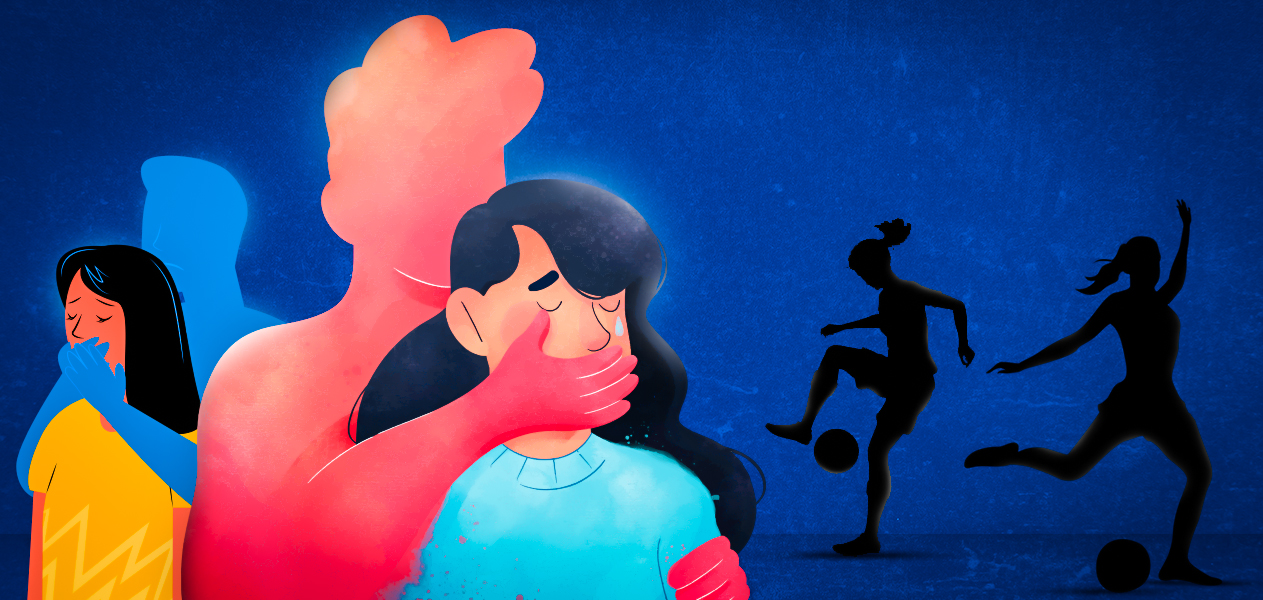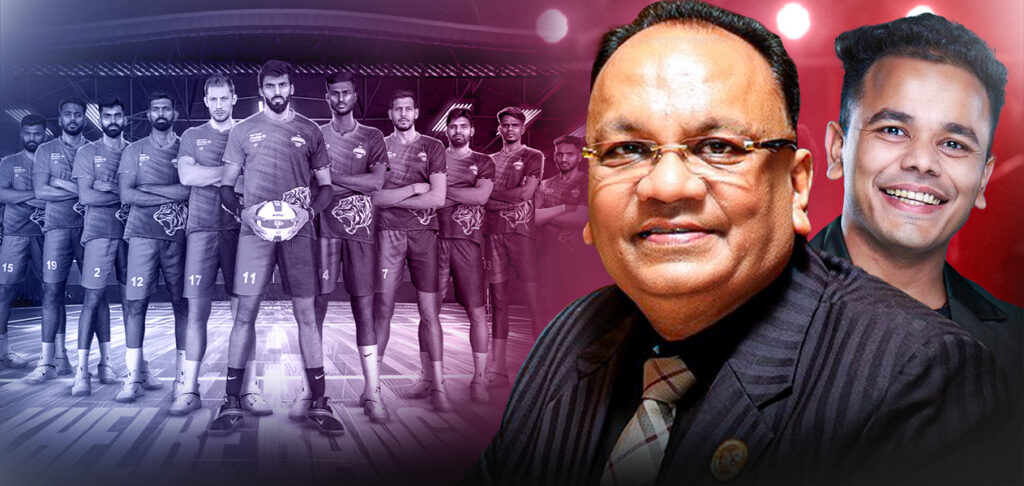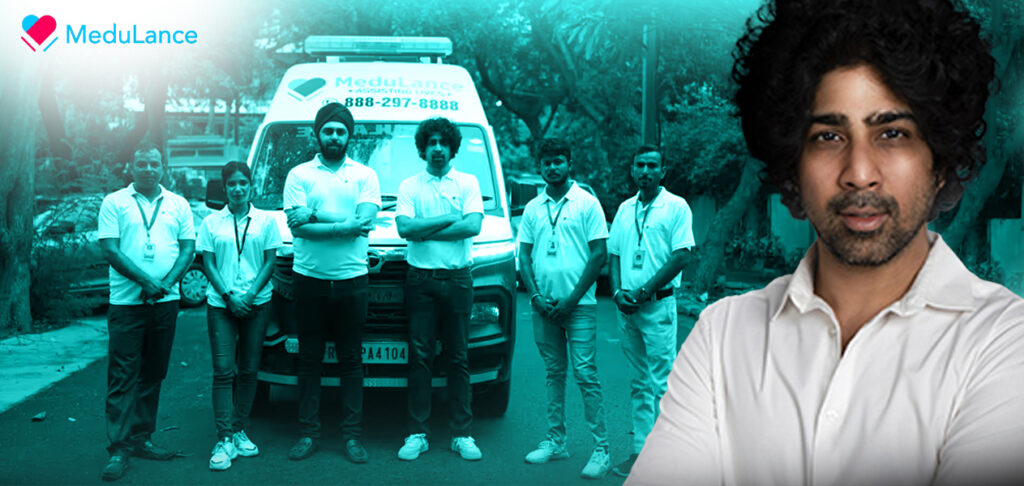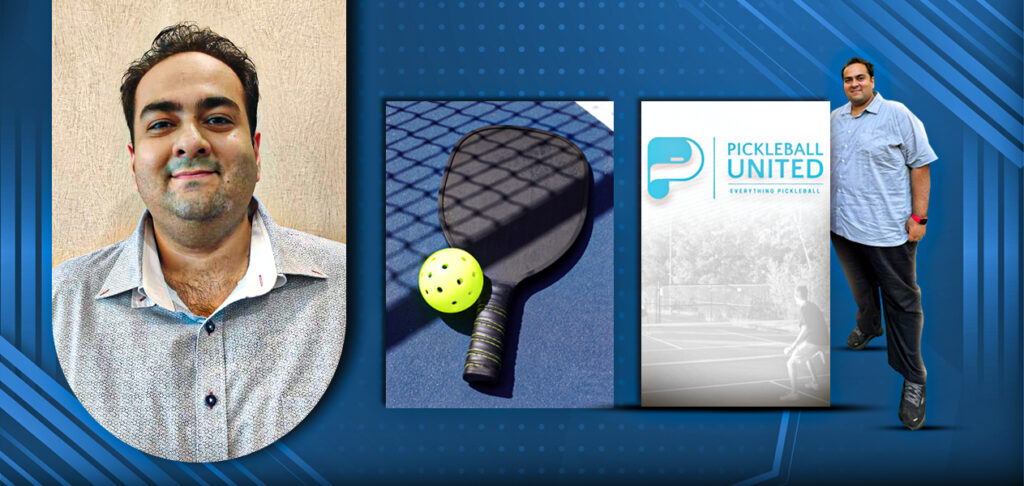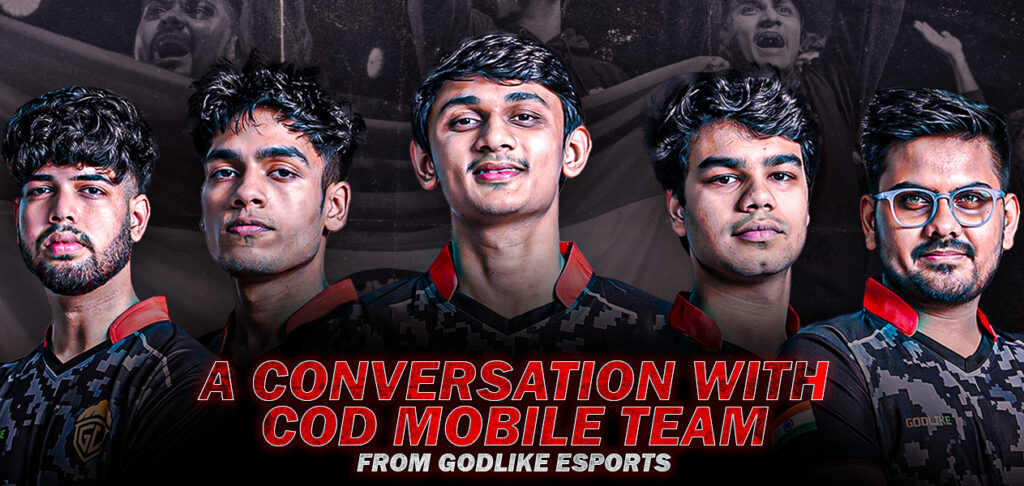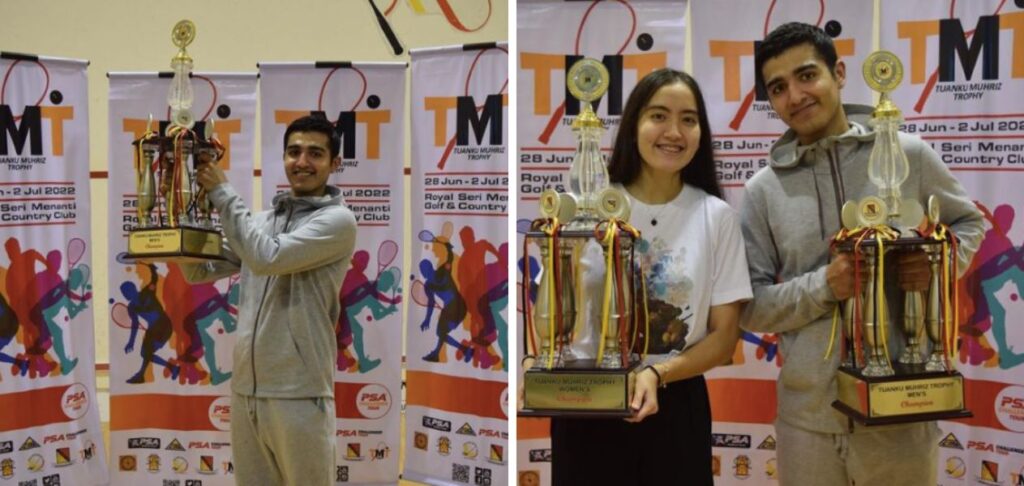A professional sports coach is often the most authoritative figure in a young athlete’s life, even more so than a teacher. It is their instructions and guidance that ultimately proves to be the difference between greatness and getting lost in mediocrity. Besides, kids, especially in Indian households, are conditioned from a very young age into believing that it is counterproductive for a child or an amateur athlete to resist their coach’s authority. However, this heavy-handed dependency on coaches poses a very serious dilemma.
Imagine yourself in the shoes of a young 15-year-old athlete who has been subject to repeated instances of sexual misconduct and abused mentally and physically during regular training sessions — an environment most parents would feel safe about when sending their kids away for fulfilling their dreams. Most of these young athletes aren’t mature enough or haven’t had any proper guidance in their formative years to fully comprehend what constitutes sexual assault. They don’t know where to draw the line until they’ve been forced to act. Moreover, as history would suggest, it is mostly children who face difficulty with making friendships and having low self-esteem, with the ones coming from a financially poor background being the ones most susceptible to abuse.
The heart of the matter
A member of the Indian U17 women’s team’s coaching staff has been reportedly sent back to India in the middle of the team’s tour to Italy and Norway after alleged “sexual misconduct” involving one of the players in the team. Sources close to the team have also confirmed this development, while adding that verbal complaints had also been previously filed against the individual from members of different batches of the Indian national women’s football setup.
The All India Football Federation (AIFF) sources confirmed that the individual has been asked to return to the country from Norway, where the Indian team are currently camping to participate in the Open Nordic Tournament WU16. The AIFF has acknowledged the development and has issued a statement saying that it is initiating an investigation against the alleged event of “misconduct”.
The official AIFF statement, dated June 30, 2022:
“An event of misconduct has been reported in the U17 women’s team currently on an exposure tour to Europe. The AIFF follows a zero-tolerance policy on indiscipline. As an initial action, the Federation has provisionally suspended the individual pending further investigation. The AIFF has asked the concerned individual to stop all contact with the team, return to India immediately, and be physically present for further investigations upon his arrival.“
New developments and shocking revelations
One of our sources, who was also a former player under the accused individual, claimed that he would always make excuses the night before any game (around midnight) to individually call the girls—either by phone call or through text messages—to come to his room on the pretext of either discussing match information, player development, or any other discrete strategy to exploit these kids.
Soon, as word got out, the girls started avoiding him. But every new batch brought with itself new victims, new tragedies, new traumas, and thus the never-ending cycle continued, where human rights and innocent children were abused and mocked every single day.
While they’ve asked us to not disclose all the details, having spoken with multiple sources on the matter, we can confirm that, since this story surfaced, more girls have been coming forward and sharing similar experiences with them. After listening to their side of the story, we tried to contact the accused individual himself to hear his side of the story on these accusations, but he has denied to provide any comments as of now.
Similar incidents in the past
Many athletes have come out in the past, and even today, affirming that sexual exploitation is indeed common in Indian sports. However, coming out to name the perpetrators after undergoing trauma for years can be very difficult. Out of the 56 recognised national sports federations, only a few have internal complaint committees to specifically investigate sexual harassment. Thus, most pleas for justice go unnoticed or ignored.
According to data gathered from an RTI application, it was found that, between 2010 and 2020, there were 45 complaints of sexual harassment to the Sports Authority of India (SAI), of which 29 were against coaches. However, any actions taken against them were at best minimal. Five coaches were penalised with pay reductions, one was suspended, while two had their contracts terminated.
Last month, the SAI dismissed chief cycling coach RK Sharma after a female cyclist accused him of “inappropriate behaviour” during a training tour of Slovenia. The cyclist alleged that the coach forced her to share a hotel room on the pretext that accommodation had been arranged on a twin-sharing basis. A preliminary report of an inquiry committee found the cyclist’s allegations to be true.
That same week, a top female Indian sailor accused her coach of making her “uncomfortable” during a training stint in Germany. The athlete turned to the SAI for intervention after raising the issue with the sailing federation several times and not receiving a response.
In another prominent case from July last year, several female athletes came forward with sexual harassment allegations against renowned sports coach P. Nagarajan. In one case, involving a young 19-year-old female athlete, Nagarajan was arrested after the athlete alleged that the coach threatened to murder her and her family members if she created any trouble for resisting his advances.
These are, however, only some of the cases where the victims got justice, to an extent. There are numerous cases from the past that have been shelved away unresolved without any proper reasoning.
In 2009, S. Amaravathi, a promising young 21-year-old female boxer, could not take the continuous onslaught of harassment by her coach and chose to end her life. Amaravathi could no longer accept the numerous altercations with her coach Omkar Yadav and committed suicide inside the Lal Bahadur Stadium by consuming poison. She was a promising young boxer who was a junior national boxing champion. She also won silver in the 2004 Southern Indian Women Boxing Championship and won bronze in 2006 at the Senior National Boxing Championship. Following her death, an inquiry was ordered. However, the hostel authorities inside the Sports Authority of Andhra Pradesh (SAAP) campus, where she was residing at the time of committing suicide, denied all charges and stated that she was only suffering from low-self esteem, which makes things look a bit dubious on their part since her brother and family members accused Omkar and his repeated harassment for her death.
In 2010, a few players from the Indian women’s hockey team registered a formal complaint against their then-coach Maharaj Krishnan Kaushik, accusing him of sexual harassment. T. S. Ranjitha Devi sent an email to Hockey India regarding the issue. Kaushik, who happens to be an Arjuna Awardee, was accused of not including players in the team for not accepting his “demands”. Ranjitha Devi also accused him of sexual harassment towards her. Following the complaint, Kaushik was immediately relieved from his duties by Hockey India. However, a bigger job awaited him: he was soon appointed as the high-performance manager for the Central Zone in 2014. He was appointed to coach the coaches of the academy and other state players.
In 2015, a young 15-year-old athlete was—allegedly—sexually harassed by a few senior athletes. She committed suicide after the incident and three other girls were hospitalised after consuming poisonous fruits in an apparent suicide pact. Injeti Srinivas, the SAI’s director-general at the time, stated that he would submit his report to the sports ministry “in a day”. Meanwhile, the Sports Secretary of Kerala, K. Shivashanker, was ordered by the state government to probe the incident. However, there have been no further reports on the case and even the details have not been disclosed.
The AIFF and its troubles
Last month, the Supreme Court ousted the Praful Patel-led dispensation in the AIFF and appointed a three-member Committee of Administrators (CoA) to frame a new constitution and hold elections for a new set of office bearers. The next hearing is on July 21 (though it is written July 23 on the docket). Once the Supreme Court gives the green light, it is expected that the new constitution will be approved within seven days.
However, the visiting FIFA-AFC team, led by the Asian Football Confederation General Secretary Windsor John, upon completion of their three-day visit, made it clear that the deadlines will have to be followed strictly. The FIFA-AFC team have asked the stakeholders to get the constitution of the national federation approved by July 31 and conduct elections by September 15, failing which could see the country banned by the world body.
What’s wrong at AIFF?
Former AIFF president Praful Patel completed his three terms of four years each—the maximum permitted to a sports federation chief under India’s National Sports Code—in December 2020. However, the AIFF did not hold fresh elections, citing a pending petition over its constitution in the Supreme Court.
The petition over the AIFF constitution was filed just a month before the elections and sought clarification; the constitution has been under scrutiny in the Supreme Court since 2017. While Patel continued to be the president past his tenure, the Sports Ministry on April 8, 2022, in relation to a Special Leave Petition filed against the AIFF, in which the Union of India is also a respondent, in an affidavit told the Supreme Court that Patel and his committee had no right to hold onto their offices.
The ministry also indicated that the governmental recognition of the AIFF could be denied for not adhering to the sports code.
As a result, last month, the Supreme Court ousted the Praful Patel-led committee and appointed a three member Committee of Administrators (CoA) to frame a new constitution and hold elections for a new set of office bearers.
Financial troubles
The AIFF is under severe financial pressure as the government has cut down its funding. According to a report in the Indian Express, under the Annual Calendar of Training and Competitions (ACTC), the AIFF received ?30 crore for the 2019-20 financial year, which has now been further cut down to ?5 crore for 2022-23.
At the ACTC meeting, sports secretary Sujata Chaturvedi had remarked: “Considering the poor performance of the Indian football team, AIFF was advised to strictly focus on the development of grassroot-level talent.”
Why is the AIFF constitution under scrutiny and why Praful Patel wanted to continue as AIFF president?
In 2017, the Delhi High Court set aside the re-election of Patel as AIFF president in response to a writ petition that contested that the AIFF did not adhere to the National Sports Code. The High Court’s decision was stayed by the Supreme Court, which allowed Patel to continue as AIFF president. However, the apex body had also appointed former Chief Election Commissioner of India S. Y. Quraishi and former national capital Bhaskar Ganguly as administrators to formulate the new constitution.
Quraishi, in an interview with news agency PTI in 2020, claimed that the draft constitution was submitted to the Supreme Court in the month of January 2020.
Furthermore, it was widely reported in the media that Patel was aiming to continue as the president as that would make him eligible to contest for a spot in the FIFA council, with elections for that position set to take place in 2023. The FIFA council is the main decision-making body of the organisation in the intervals of FIFA congress. In 2019, Patel became the first Indian to be elected to the prestigious panel.
If you look at the broader picture, all the mismanagement and controversies that have come up in Indian football over the last few months revolve around the national setup. An important question arises here: is there a flaw in the system itself, or is it the people running the show who aren’t competent enough? For instance, India hosted the AFC Women’s Asia Cup, but the Indian team had to withdraw after there were severe breaches in the COVID bio-bubble, which was farcical and unacceptable given India was the host country.
If you go back and look at the history of Indian football, there have been numerous such incidents of mismanagement. However, in the present day and age, when you have a full-fledged national team department, where more than a dozen people are working together and are compensated well for their services, it raises a serious question as to why there’s such a lack of foundation and core understanding within the system.
Apart from that, on June 30, 2022, AIFF General Secretary Kushal Das resigned from his post citing health-related reasons, thereby ending a 12-year tenure which was often marred by allegations of financial improprieties and controversies. Many among the footballing industry, however, have claimed that he was kept out of the job by the Committee of Administrators (CoA) on other grounds, with the former General Secretary having also being accused of alleged molestation of employees at workplace in the past, though he was given a clean chit on the charges by the AIFF’s integrity officer.
FIFA, with its recent inspection with the FIFA-AFC team, has made it clear that instructions must be strictly followed. The world governing body has always maintained that its members must remain interference-free from the national government and jurisdiction. In 2017, the Pakistan Football Federation was suspended after a court-appointed administrator took control of the sports body. Thus, a similar situation could potentially result in India missing out on hosting the upcoming 2022 U17 Women’s FIFA World Cup.
The ever-dwindling coffers will also impact the growth of the game in the country, while reduced financial freedom means the AIFF will have lesser money to spend on its leagues and grassroots development.
The State FAs have demanded stringent action against the accused individual. The state associations affiliated to the AIFF have come out with a strong statement and have asked the parent body to take stringent actions if the allegations turn out to be true.
The AIFF administration has also been urged to appoint a woman safety officer. The State FAs have also expressed their absolute lack of confidence in the working of the national team department.
The statement issued by the State FAs read:
“Member Associations in one voice condemn the immoral action of the coach and make a sincere request to COA and AIFF Administration to initiate an independent enquiry after filing an FIR. State Associations would like to recommend stringent action including legal and exemplary punishment with a life ban from football and even canceling his coaching licenses.
State Associations also resolved to request COA and AIFF Administration to urgently appoint a Woman Safety Officer with immediate effect to instill confidence in the system for women players and women working in football, especially with national teams and in AIFF house.
State FAs also expressed their no-confidence in the working of National Team department as since AFC Women’s Asian Cup 2022 one or the other issues have badly hit the reputation of Indian football. An independent enquiry should be conducted in the management and functioning of the National Team department especially the decisions and actions of the Head of National Team Department should be thoroughly probed to establish the frequent failures including the appointment of the coaches and scouts in AIFF.
Member Associations also like to make a sincere request to COA and AIFF Administration that all male support staff with women teams should be replaced by the female support staff as early as possible.“
Around 28 out of the 35 AIFF-affiliated state associations and units have come together to issue this statement. While it is indeed a step in the right direction, a certain former player has voiced her anger and frustration at the state associations for not carrying out their roles and duties in their respective regions.
Juhi Shah, Program Coordinator at Meta, an advocate of equal women’s rights and a former national-level player, said via her Twitter handle: “Also, how about you form a committee within your state to help safeguard the women players who proudly represent their state at national tournaments and take action against those who are guilty.”
In her Twitter thread, Juhi also highlighted an incident from 2014, where the then-General Secretary of Uttar Pradesh Football Sangh (UPFS) Mohd. Shamsuddin was arrested and charged with sexual harassment of a female footballer who was set to participate at the then-imminent Senior Women’s Football Championship at Assam. Shamsuddin, who was not only a high-ranking official within UPFS but also the chairman of audit and finances within the AIFF, was merely suspended by the UP Olympic Association after waiting three days for any official statement from both the AIFF and UPFS. He was never suspended from his posts at the AIFF and UPFS and enjoyed his post within the executive committee at the AIFF before his demise in 2020. The footballer and her teammates, who stood up for the cause, were all removed from the senior national team, and instead a “B” team composed of players from other disciplines were sent to the tournament.
(Here’s the link to Juhi’s Twitter thread: https://twitter.com/juhishah11/status/1542738275462352896?t=wogfpO35O7jrZfCiqRJ2Wg&s=19)
Although the coach-athlete relationship creates a unique power dynamic in any sport, sexual harassment has been plaguing sports for decades. A research in sports psychology by Brackenridge last year shows that pubescent and prepubescent athletes are the ones most vulnerable to sexual assault, with the study showing more than 83% of the victims being either adolescents or children.
About 30 years ago, it was recognised that child abuse was much more prevalent than previously thought. Research-based evidence began indicating that such abuse often had deleterious consequences both during childhood and across later periods of development. Central to the output of this study were certain characteristics of sexual abuse, such as duration, frequency, relation to the abuser, presence of physical violence, and the age of onset, that played major roles in the degree of trauma experienced and in the effects of the results.
The results showed that sexually abused females (on average) showed deleterious sequelae across a host of biopsychosocial domains including: depression, earlier onsets of puberty, cognitive deficits, dissociative symptoms, maladaptive sexual development, hypothalamic-pituitary-adrenal attenuation, asymmetrical stress responses, high rates of obesity, more major illnesses and healthcare utilisation, dropping out of high school/colleges, persistent post-traumatic stress disorder, self-mutilation, physical and sexual re-victimisation, premature deliveries, teen motherhood, drug and alcohol abuse, and domestic violence. Moreover, any offspring born to an abused mother was at an increased risk of maltreatment and maldevelopment.
More shocking, though, is the fact that there is no designated body to monitor or collate data related to sexual abuse in national sport. The absence of such a body makes it impossible to ascertain the extent to which sexual assaults occur. Without the existence of a supervising body, every sports industry will lack the information necessary to prevent such individual atrocities as well as recognise the nature of abuse at a macro level. However, this is not an insurmountable problem.
We spoke to sports advisor and football strategist Arunava Chaudhuri, who pointed out a few aspects that need immediate addressing: “I think there are two topics that come here together—safeguarding the interests of women on one side and the other side for minors. It’s not just about girls but boys as well. Sexual exploitation, misuse of power, mistreatments — multiple issues come into this, which is a very dangerous topic to address, and I hope that the AIFF has the processes in place how to report how to deal with such incidences.”
When asked for immediate solutions, he added: “First of all, there should be a schooling of staff. The staff needs to be aware that such incidences can happen, shouldn’t but can, and how to deal with such situations.
“It’s also the human element on how to deal with such situations. People should be made aware that whoever is reporting, that person is not made a scapegoat because that person has done something very important.”
Along with Mr. Chaudhuri, we also consulted Sanika Divekar, trainee sport and exercise psychologist, regarding how such traumatic incidents can affect and impact the mental and physical well-being of an athlete, how it affects their psychology and performance in the field of play, and what we can do on our part to protect children and their mental well-being from such incidents in the future.
Ms. Divekar stated that, although sports psychology was prevalent in the country, it was only available to Tier 1 athletes, athletes who had either made it big or were on the verge of it.
When asked if the expenses could be the reason behind the paucity of this resource to certain athletes, Ms. Divekar was quick to debunk that that, in fact, was a myth, and that it was the lack of general awareness and accessibility (mostly in Tier 2 and Tier 3 cities) that played a big role in young athletes from these regions not getting the necessary guidance and psychological support to overcome their obstacles.
When asked about how one could help someone who had experienced sexual harassment, she said it was rather subjective and depended from person to person and the extent to which they had been abused. She pointed out the need for proper support and mental stimulation in order to make them feel comfortable both in their skin and with their surroundings.
We also asked Ms. Divekar whether there was already a system in place that could determine the level of stress these traumas put on an individual’s physical well-being, the relation between traumas and performance in the field of play, and if there was a way to measure it. She said that, although similar models had been put in place in some of the advanced countries, no research work had been done in India, and as a result there was little data available to measure how a human body stores trauma and how it reflects in terms of performances.
On an ending note, we asked Ms. Divekar if there was something that she felt needed to be done immediately to eradicate such incidents from our society. She stated that raising the general awareness about sports psychology and increasing the accessibility to sports psychologists could go a long way in safeguarding the youths to some extent, while more time and effort needed to be put into conditioning the minds of these children as well as grooming the coaches while they are doing their badges and different coaching courses.
For young athletes, irrespective of their gender identities, one needs the right support staff around them to help them bloom and flourish at the big stage. For young female athletes, in particular, it’s quite possible that the presence of a female coach might impact their desire to remain in the sport and vice versa. According to a 2015 report surveyed by the International Olympic Committee (IOC), almost half of the National Olympic Committees in the world have fewer than 20% percent women representation at the executive level. Ten countries have no women representation at all.
In the Indian governing sports associations, women constitute between 2–8%, while Hockey India, with 34% women representation, is the only exception.
The prevention and handling of sexual assault cases require a context-specific approach. The complications are nuanced, and no industry has ever been able to eradicate abusers in its entirety. This case, in particular, should be the wake-up call for action across the board in global sport.
Some stringent and necessary steps are needed to be taken in order to safeguard and protect these vulnerable and innocent children from getting targeted and, more importantly, emphasis needs to be put on putting words into action.
At the time of writing, the accused individual is still waiting for the investigation to be completed and the verdict to be announced. And, based on what we’ve heard from various sources about the length of the crime, there are possible charges that he could end up facing if the matter goes to court. The Indian Penal Code (IPC) covers a list of sexual offences and the punishment that comes with committing such offences, if proven guilty.
Some of you might also be wondering whether the AIFF itself could and should be held accountable for such an incident. Now, the problem that arises here is that there’s a concept called “vicarious liability principle” in law, which states that the employer can only be held liable if the employee performs an action that has been consented by the employer, or if the employee was in official discharge of his duty. Thus, although the individual is an AIFF employee, he acted in a personal capacity and not in discharge of duties stated by the AIFF. Hence, liability can only be limited to the coach in this instance.

